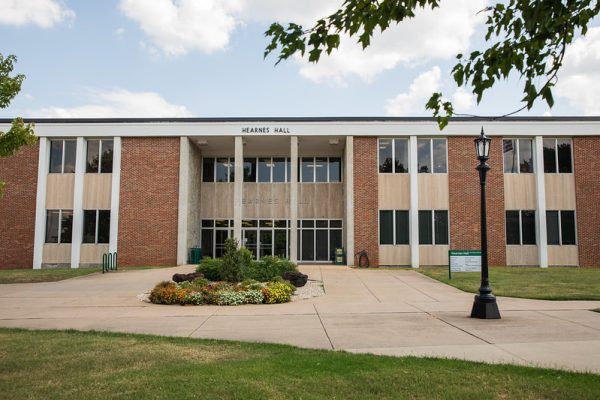Online senior assessments provide valuable information to University administrators
It turns out that the administration at Missouri Southern doesn’t actually want to kill students by slowly suffocating them with the surveys that they distribute at the end of the semester. There is a reason behind what may seem to some students as a tedious process.
Specifically seniors, who may be asked to take up to three different “assessments” of sorts at the end of their undergraduate degree (in addition to the instructor evaluations completed each semester for each class), may feel a bit overwhelmed at this time of year. Though feelings of cynicism may be justified for some students (especially by those suffering from the nearly incurable “senioritis”), Dr. Josephine Welsh, Director of Institutional Effectiveness at Southern, stressed the importance of these assessments.
Besides the senior test for different majors (which varies depending on the area of study) and the National Survey for Student Engagement (which asks students about their work and study habits), a random group of seniors was also selected to participate in the ETS (Educational Testing Service) Proficiency Profile.
This particular test measures the academic skills of students in order to understand the effectiveness of general education classes.
“At the general education level, not only do we want to know how we are doing with basic skills that we would want every college graduate to be able to have mastered… but also, the Missouri Department of Higher Education requires that we report scores,” said Welsh.
Through the results of the test, the leaders at Southern can determine if they are meeting their own internal requirements, and they can also see how well the academic programs at Southern compare with other schools in Missouri.
To give an idea about the progress that Southern has seen in this testing, Dr. Welsh discussed a brief history of how the process for distributing the ETS Proficiency Profile has changed in the past several years.
Several years ago, every senior student was required to take this test in person, and every session required a proctor. Not only was this perceived as a waste of time by the students, but it was also extremely costly. Southern was charged for every test taken, which does not even account for the amount of money spent as part of salaries of the test proctors (who gave up time they could have spent working on something else).
In more recent years, every senior was required to take this test, but the testing was done entirely online. There were a few problems presented by this method: students had access to different tools that were unavailable when they took the test initially (calculators, the internet, and other people), and the administration could not stress the importance of the test in an email.
This year, they may have found a solution to the problems presented by the methods attempted in previous years. Instead of testing everyone, the Department of Institutional Effectiveness decided to test only a sample of the students. They could still get the accurate results they wanted without testing everyone.
To address the problem of student motivation, the administration got creative.
“Right before the session, either President Marble or Provost Paula Carson came over and spoke with the group of students. They thanked them for their time and explained to them why this test is so important,” said Welsh.
In addition to the exhortation from campus leaders, students were offered gift cards (donated by area restaurants) for their participation. Donors included Chick-fil-a, Carino’s, Granny Shaffer’s, Rib Crib, McAlister’s, Casa Montez, Cheddar’s, and Fazoli’s.
Ryan Jackson, senior mass communication major, was randomly selected to participate in the test.
“It’s definitely a hassle to do. I have other stuff I have to do, but I realize that it’s beneficial to the university. The test only took me like 25 minutes, and I got a $20 Fazoli’s gift card out of the deal. It was also really cool that Dr. Marble came in and thanked us and congratulated us. I could tell they really care about the test,” said Jackson.
The numbers for the new method speak for themselves. In 2015, the non-proctored, online testing cost Southern $11,556. In 2016, the proctored, in-person testing cost Southern only $1,450.
Your donation will support the student journalists of Missouri Southern State University. Your contribution will allow us to purchase equipment and cover our annual website hosting costs.





























